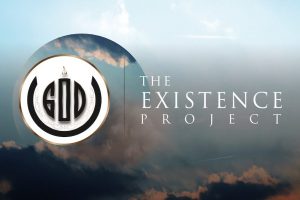
Translated into English for the first time by Dr Amatul Razzaq Carmichael for The Review of Religions Translation Team
On 18th of December 1946, after the Maghrib [prayer after sunset] prayers, Dr Mela Ram PhD, Professor of Physics, FC College Lahore, delivered a lecture about the age of the Earth, before a gathering in Masjid Aqsa, Qadian, (India). His Holiness, Hazrat Mirza Bashiruddin Mahmud Ahmad (ra), second head of the worldwide Ahmadiyya Muslim Community, presided over the meeting. After Dr Mela Ram’s lecture, the audience were invited to ask questions, but apart from Dr Abdul Ahad, PhD, no one asked any questions. After a short pause, His Holiness took the podium to deliver his presidential address.
After reciting the Tashahhud, Ta’awwuz and Surah al-Fatihah, Hazrat Mirza Bashiruddin Mahmud Ahmad (ra) stated,
It seems as though people do not wish to ask any questions. Earlier when the esteemed Dr Kachlo spoke on Atomic Energy, many questions were posed to him. But now having heard a speech delivered on the age of the earth, there is complete silence, and with the exception of Dr Abdul Ahad Sahib, nobody asked a single question. In Psychology there can be two reasons for this, either a person is overcome by awe and begins to ramble on, or he remains completely silent. Only an expert in psychology can find out the real reason for this silence.
The scientific point of view that Dr Mela Ram has presented is quite interesting. As far as religion is concerned, we find no reason to disagree with his opinion, but at the same time, we are not compelled to accept this as the absolute truth.
From a religious perspective, these findings do not cause us any concern or apprehension. The thought may cross some people’s mind that in the religious scriptures, the age of the earth is said to be six thousand years, however science now presents the evidence that the earth is billions of years old. There are two points worth remembering in this regard.
Firstly, six thousand years is not the age of the physical earth which is composed of rocks and various metals. The physical earth may well be billions of years old, or perhaps even older, but it is irrelevant [from a religious perspective]. The six thousand years mentioned in the religious scriptures represents the period since the advent of Prophet Adam (as) to the present age. Hence, there is no conflict between scientific and religious views regarding the age of the earth.
When we say that the earth is six thousand years old, we infer that the advent of Prophet Adam (as), who is the father of the current civilisation, took place six thousand years ago. We certainly do not mean that there was no Adam before the advent of our Adam (as). For example, when someone says that his great grandfather immigrated to India at such and such time, does that mean that before that particular great grandfather, he had no ancestors? What he simply means is that a certain forefather immigrated to India at a particular time; whereas his ancestors who preceded him existed from before. The Holy Qur’an reveals that the Adam (as) mentioned in the Holy Qur’an was not the Adam who was the progenitor of the human race. Rather, the Adam (as) mentioned in the Holy Qur’an is the one who founded the present civilisation that has gradually evolved in the last six thousand years into its current state.
From the Holy Qur’an we learn that the people to which Prophet Adam (as) was sent were not a developed race and were completely bereft of human social development and organisation. The Holy Qur’an describes them as jinn, i.e. people who lived in caves and would not dwell on land as communities. At that time, the human brain had not evolved to the point where they could form communities or understand division of labour. They used to live an isolated life in caves, their lives were similar to tigers, cheetahs, and wolves, who roam in the jungle independently without forming communities. On the call of Prophet Adam (as), some of them accepted the concept of community life and civilisation and so were called insane [civilised human]. And those, who refused to accept the message of Prophet Adam (as) were jinn as referred to in the Holy Qur’an, because they preferred to stay in the caves in seclusion. Those who followed Prophet Adam (as) learned to make dwellings on land and were given the title bashr and insan [civilised humans].
There is not a single verse in the Holy Qur’an that suggests that there were no people before the advent of Prophet Adam (as). The mention of humans and jinn does not refer to two types of beings, rather it refers to two types of societies and respective moral conditions. At the time of Prophet Adam (as), the law consisted of simple rules which taught that if people live together in harmony, help each other, and establish a community, they would overcome the difficulties of thirst, hunger, and clothing. That was the basic law, which was free from any kind intricacies and complexities. This law was apt and consistent with the intellectual capacity of humans of that time. When Prophet Adam (as) presented this law to his people, some people accepted this and agreed to follow Prophet Adam (as); owing to this, these people were called Admi [1]. Those who refused to accept this law were called jinn. The Holy Qur’an says that the progeny of both jinn and humans will continue to exist simultaneously on this earth. Their status from human to jinn would continue to change between the two depending upon their acceptance or rejection of the Prophet of the time. Hence, with the advent of every new prophet, some people attain the status of humans [admi] by believing in the prophet; while others reject the prophet and are referred to as jinn.
The expression that the world is six thousand years old signifies the age of the present civilisation. Religion does not offer any details about the time prior to that; or at least we have not been able to deduce any details about this from religious scripture. The period of six thousand years is the time when humans started to follow religious commandments. Prior to this, humans did not have the capacity to follow a religious law, therefore religion does not make any reference to that period. Indeed, scientists, mathematicians, and experts in geography are free to continue their research [about the age of the earth].
Religion is about spiritual matters, and one does not need to be an expert of the physical sciences to make spiritual progress. That is why Allah the Exalted did not teach science, geography, and mathematics in religion. Instead, God Almighty gave man a choice to learn these disciplines through his own efforts. Within the sphere of religion, these subjects do not carry importance. By this I mean that it is not essential to be an expert in physics and chemistry to be able to form a strong bond with Allah the Exalted. Had this been the case, very few people would have been able to reach God.
Allah the Exalted did not create any hardship for human beings. God has made the path to find Him so simple and straightforward that even a person of basic intelligence can reach Allah the Exalted through regular worship and by adopting the morals taught by religion. [By stating that the earth is six thousand years old], religion has simply explained the beginning of man’s spiritual journey. What existed prior to that does not concern religion. Before that, the human mind was not capable of following religious law, hence the period prior to the six thousand years is excluded from the sphere of religious debate.
Would anyone teach the Holy Qur’an to one who has lost their mental faculties and preach them to follow the law of Shariah? No wise person teaches the Holy Qur’an to someone who has lost the capacity to understand and follow the Sharia. Even though such a person walks, eats, drinks and breathes just like everyone else, but he cannot be regarded as a sane human being. From a medical perspective, of course, he is a human being, but he would not be regarded as a spiritual being because of his lack of capacity to understand spiritual matters. Similarly, the humans that existed before prophet Adam (as) did not have the intellectual capacity to understand religion.
The second answer is that Islam does not say that Prophet Adam (as) of our present human cycle was the progenitor of the entire human race and that there were no human beings before him. Hazrat Muhyiuddin Sahib Ibn Al-‘Arabi (rh) once saw in a vision that he was performing circuits of the Ka’bah with lots of other people. Someone told him that Prophet Adam (as) was also performing the circuits of the Ka’bah. In the vision he asked a young man, ‘where is prophet Adam (as)? I wish to meet him.’ In response, the young man asked, ‘which Adam are you referring to? Which one is your Adam? There are several thousand Adams present here.’ [2]

Now reflect on this; if there are many Adams and every Adam’s era spanned a period of several thousand years, then the age of the Earth will easily be billions of years. However, religion only concerns itself with the time period when the human brain had evolved enough to acquire the capacity to understand religion. If there were several thousand Adams were born over the course of billions of years, even then this would not represent the age of the earth. Because it is not necessary that the heavens and the earth were created on the same day that the very first Adam was born. Undoubtedly, the heavens and the earth would have been created before that. Hence, trying to figure out how much earlier the heavens and the earth were created before the very first Adam is like groping in the dark.
So, there is no contradiction between the point of view presented by us and the point of view presented by Dr Mela Ram. There are other questions that I wish to ask him, but perhaps in another sitting. However, it is wrong to say that there is a clash between religion and science. Religion is the word of God and science is the work of God; no conflict can exist between the two. As Dr Mela Ram has explained that according to their research, the age of the world is 20 billion years. In this, we do not see any contradiction in the word and the actions of Allah the Exalted. However, if we ever were to come to a point where it appears that the word of God conflicts with the work of God, then we will deem that either we, the believers have made a mistake in understanding the religious perspective or the scientists have made a mistake. Then, new research or a new revelation [i.e. divine inspiration] will shine new light on it and resolve that issue.
Secondly, we are not obliged to accept all theories of science as accurate. For example, if a person claims that he visited Lahore, it is a definite possibility that he may have visited it, but it is not an absolute fact that he really visited Lahore. It is possible that he did not visit Lahore and was telling a lie. Only because someone claims that they visited Lahore, does not necessarily mean that we should accept their claim. In the same way, many statements put forward by science are only theories; meaning that they are mere inferences based on logic. Therefore, if something is logically possible, it does not make it a proven fact. So, if a scientific theory conflicts with religion but logic and wisdom suggest it is a theoretical possibility, then we have every right to say that we are not prepared to accept this statement unless supported by categorical and conclusive evidence or until the scientific theory is supported by a religious viewpoint.
In summary, whether the age of the earth is thought to be 30 million years or 3 billion years, this is not against the concept presented by religion. This is because we know that God’s attribute of ‘The Creator’ [Khaliqiyyat] is not limited. Allah the Exalted has been here from eternity and will be here forever. He has always been the Creator and His attribute of Creation is limitless. If we say that this world is 20 billion years old, this limits the attribute of the Creation of God. The fact of the matter is that 20 billion years compared to eternity are like comparing a drop of water to an ocean. So, if Allah the Exalted’s attribute of Creation is eternal, one cannot calculate the date of the origin of the earth. Because this is a matter of immensely long calculations which extend even beyond billions and trillions of years. If a mathematician spends all his life, from the day of his birth to the day of his demise in calculating this, even then he would not be able to derive the accurate date. In my opinion, it is a waste of time to try to calculate eternity. Our God is Eternal and Ever Lasting; His creations have been with Him from eternity. This is because to believe that there was a time when God was sitting idle is against His Majesty, and an idle god cannot be God.
(Published, Al-Fazl, 25thJanuary, 1947, pp. 1-3)
(Anwar-ul-Uloom, Vol 18, pp. 495-502)
ENDNOTES
[1] “Admi” is an Urdu word which refers to humans and has been taken from the word “Adam” to signify those who followed him [Publisher].
[2] Muhyiuddin ibn Al-‘Arabi,Al-Futūḥāt al-Makkiyyah, Vol. 3, p. 531, Beirut 1998




Add Comment